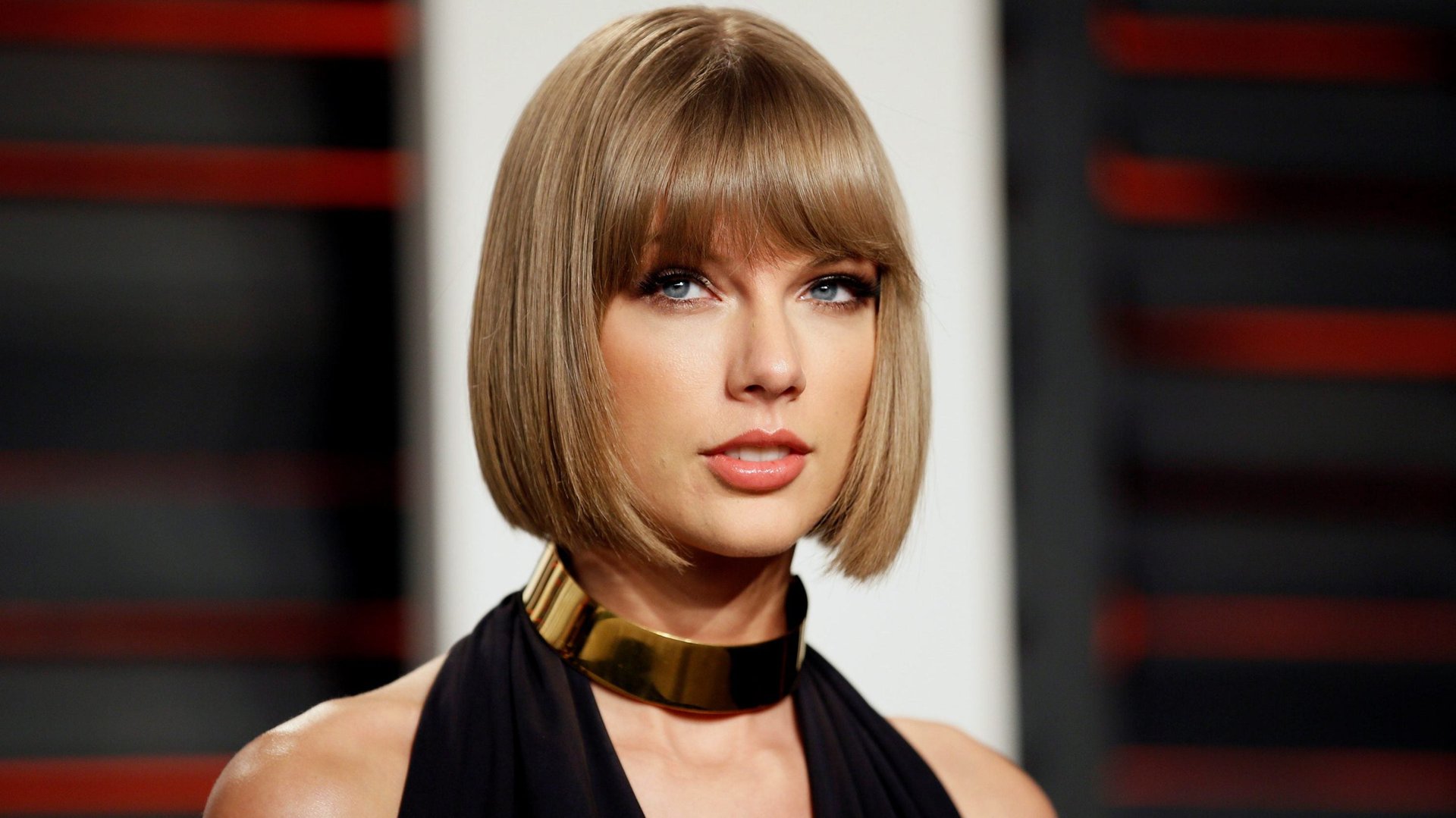Taylor Swift sending flowers to her hot new competition is the ultimate power move
No one would accuse Taylor Swift of lacking a competitive spirit. The pop star famously went after Katy Perry for allegedly hiring away her backup dancers, and her longstanding feud with Kanye West often seems to be, at its heart, about who’s the bigger superstar. But this week, Swift took a new approach to dealing with a musical rival, sending flowers the rapper Cardi B, whose debut single “Bodak Yellow (Money Moves)” has knocked Swift out of the top spot on Billboard’s Hot 100.


No one would accuse Taylor Swift of lacking a competitive spirit. The pop star famously went after Katy Perry for allegedly hiring away her backup dancers, and her longstanding feud with Kanye West often seems to be, at its heart, about who’s the bigger superstar. But this week, Swift took a new approach to dealing with a musical rival, sending flowers the rapper Cardi B, whose debut single “Bodak Yellow (Money Moves)” has knocked Swift out of the top spot on Billboard’s Hot 100.
The world learned of the gesture when Cardi B posted a thank-you note to Swift on Instagram:
It’s impossible to know for sure what Swift’s motivations were. Perhaps she genuinely wanted to congratulate Cardi B; perhaps she wanted to send the message that she wasn’t threatened by another musician’s success. Either way, there’s an important management lesson nestled in that big box of pink roses: Showing support for your competition is the ultimate power move.
It’s only human to feel a bit freaked out by other people’s achievements—particularly when you’re competing on the same professional turf. Comedians Marc Maron and Louis C.K. have memorably discussed the way that Maron’s past resentment over C.K.’s growing fame put their friendship on the rocks. The professional jealousy of 17th-century scientist Robert Hooke famously drove him to scuffle with Isaac Newton, according to astronomer Alan Hirshfeld’s Parallax: The Race to Measure the Cosmos. And Paul McCartney has said that although he and his Beatles bandmate John Lennon collaborated closely, they would each get a little prickly when the other brought in a new song, as noted in a 2010 article from the Harvard Business Review.
In the right dosage, feeling competitive with your professional peers can help you keep your edge. But when that competitiveness bleeds over into insecurity and jealousy, things get toxic. In a terrific installment of Cheryl Strayed’s original “Dear Sugar” advice column, Strayed responds to a writer consumed by envy whenever his literary peers receive good news:
We are all savages inside. We all want to be the chosen, the beloved, the esteemed. There isn’t a person reading this who hasn’t at one point or another had that why not me? voice pop into the interior mix when something good has happened to someone else.
But as Strayed points out, just because jealousy is natural doesn’t mean we should let it control us. We won’t always automatically feel happy for other people when they win an award or land a plum new gig. We have to actively choose to feel happy for them instead.
“You actually do stop being an awful jealous person by stopping being an awful jealous person,” Strayed advises the writer. “When you feel like crap because someone has gotten something you want, you force yourself to remember how very much you have been given. You remember that there is plenty for all of us. You remember that someone else’s success has absolutely no bearing on your own.”
Crucial to Strayed’s point is the idea that we can teach ourselves to stop feeling bad when others succeed. It turns out that learning to think (or at least act) this way can also be a competitive advantage, as evolutionary psychologists Sarah E. Hill and David M. Buss write in “The Evolutionary Psychology” (pdf), published in Oxford University Press’s Envy: Theory and Research.
As Hill and Buss explain, society is inherently competitive. The ability to understand how we measure up against our peers can help people learn to adapt and survive. “When competing for access to scarce resources, an individual’s optimal behavioral strategy critically depends not only on the qualities and talents of oneself but also on those of one’s relevant social competitors,” they write. “Thus, it is likely that selection has shaped a rich array of cognitive adaptations designed to approximate how one stacks up compared to one’s rivals.” In other words, our brains are basically programmed to freak out when friends on Facebook show off their engagement rings or announce they’ve received a fancy new promotion.
But while everyone feels jealous sometimes, as Hill and Buss explain, the key to staying competitive is to act like everything is totally chill. “Concealing the enviousness that one feels toward rivals leaves the possibility open for the individual to influence others’ perceptions of the individual’s successes and failures to his or her advantage, potentially mitigating any social damage resulting from unfavorable social comparisons with the advantaged rival,” they write.
Taken together, Strayed’s wisdom and the psychological findings of Hill and Buss suggest that when you’re bested by a professional rival, the most effective strategy is to tell yourself that you’re not worried at all, and act accordingly. Taylor Swift may not have the number-one Billboard single anymore, but she’s still a multi-platinum, Grammy-award-winning artist with an estimated $280 million in net worth. There’s room for more than one person at the top, and she’s got nothing to fear from the competition. Just don’t expect her to send flowers to Katy Perry anytime soon.